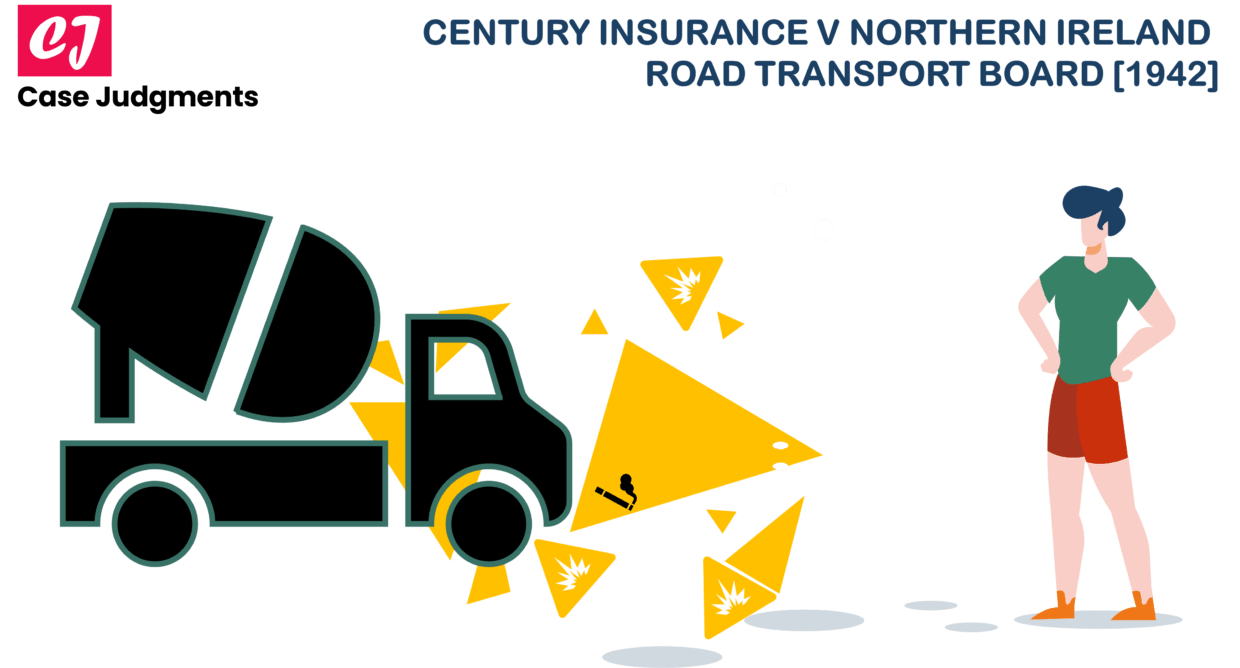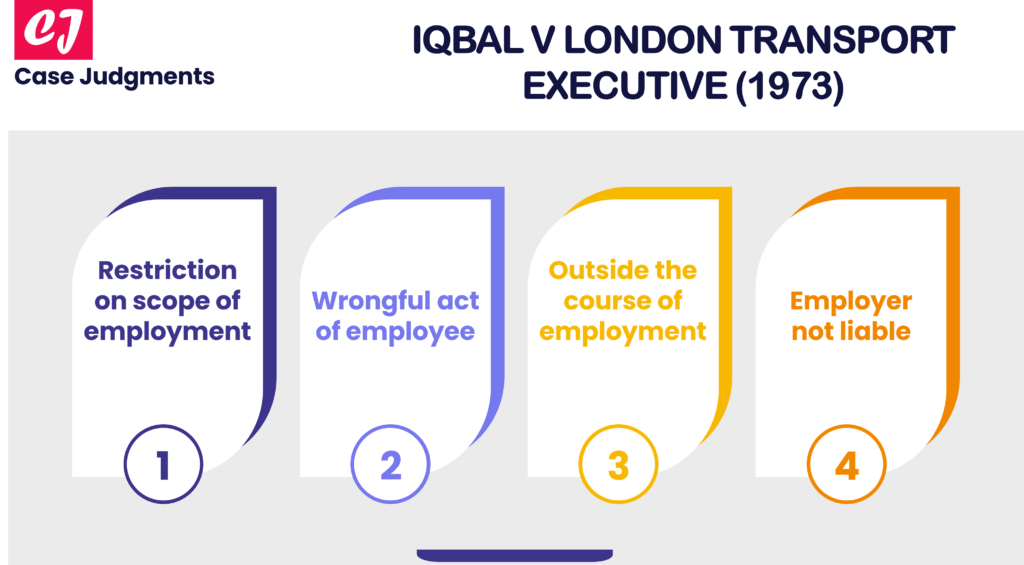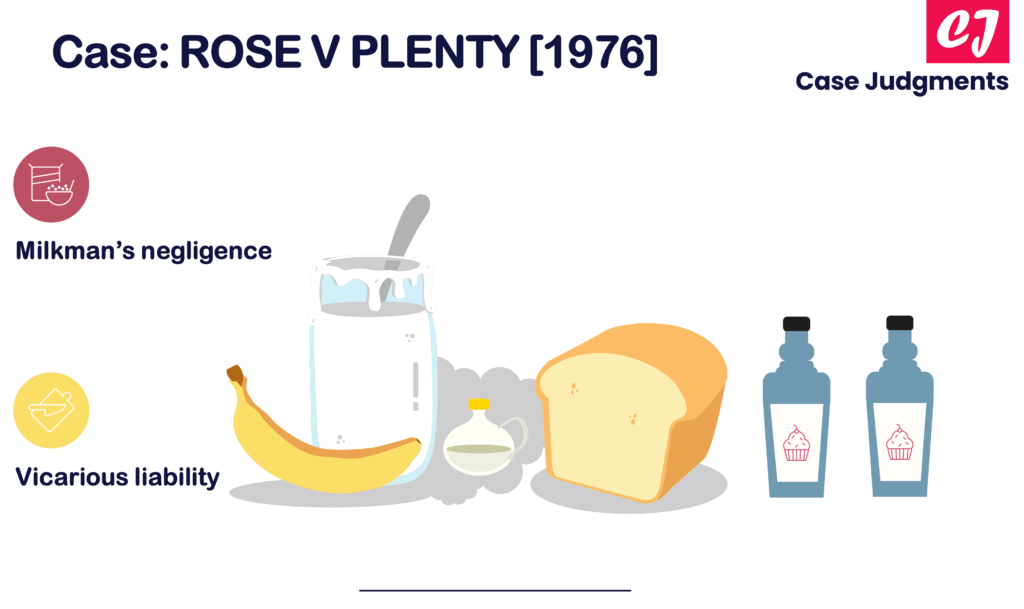
Century Insurance v Northern Ireland Road Transport Board [1942]
Case name & citation: Century Insurance v Northern Ireland Road Transport Board [1942] AC 509
Court and jurisdiction: House of Lords, England and Wales
Decided on: 04 March 1942
The bench of judges: Viscount Simon (Lord Chancellor), Lord Wright, Lord Romer and Lord Porter
Area of law: Vicarious liability
What is the case about?
Century Insurance v Northern Ireland Road Transport Board [1942] is a UK tort law case on the vicarious liability of employers.
Case facts (Century Insurance v Northern Ireland RTB)
The employee was the driver of a petrol tanker. When he was transferring gasoline from the vehicle to an underground tank, he struck a match to light a cigarette, and then he threw it on the floor while it was still alight. It caught fire and caused damage.
Issue
Could the employer be vicariously held liable for the negligence of the driver?
Judgment of the Court in Century Insurance v Northern Ireland Road Transport Board
The House of Lords held that the negligent act of the employee was within the course of his employment. He was still at his job filling up the garage tank when having the cigarette.
It was emphasized that the employee was performing his duties when he connected his petrol tanker to the underground tank, and that he would have been performing his duties when he disconnected the nozzle once the tank had reached its capacity. During this interim period, his duty (and, thus, what was in the course of his employment) was to stand and supervise the procedure. In this regard, Viscount Simon LC quoted Milton to highlight the point: ‘they also serve who only stand and wait.’
Therefore, his employers were found to be liable for the explosion and fire that resulted from the incident because the negligent act of the driver was merely an unauthorized method of carrying out the task he was employed to do, which was to deliver gasoline.
Now, this decision is particularly intriguing from the standpoint of employers since it would seem to be an act of clear recklessness for an employee to throw a lighted cigarette in an area where he is delivering gasoline. Despite the high degree of negligence, in this case, the employer was still held vicariously liable.
The legal point in this case
An employer will be vicariously liable for the negligent acts of his employees if the employee was doing something authorized by the employer in an unauthorized manner.
List of references:
- https://www.primerus.com/files/magco/Article%2012.pdf
- http://oro.open.ac.uk/78190/3/78190AAM.pdf
- https://www.bartleby.com/essay/Under-What-Circumstances-Can-an-Employer-Be-F359J4L3RZZA
You might also like:
More from tort law:

